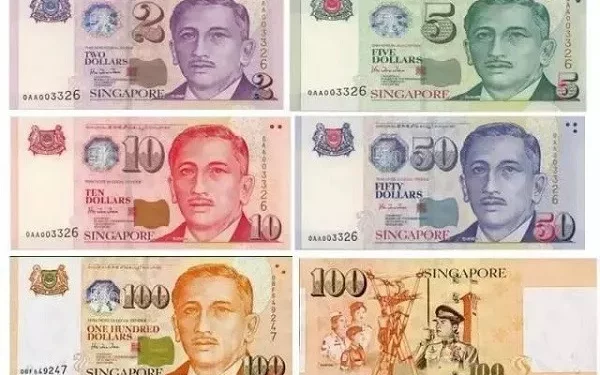Current Exchange Rate:
As of the latest available data, the current exchange rate between the Singapore Dollar (SGD) and the British Pound Sterling (GBP) stands at approximately 0.59. This means that 1 Singapore Dollar is equivalent to around 0.59 British Pounds.
Conversion Calculation:
To calculate how much 100 SGD is in GBP, we simply multiply the amount in Singapore Dollars by the exchange rate:
100 SGD * 0.59 = 59 GBP
Therefore, 100 Singapore Dollars is approximately equal to 59 British Pounds.
Factors Influencing Exchange Rates:
Several factors influence exchange rates, including:
Interest Rates: Higher interest rates in one country relative to another can attract foreign capital, increasing demand for that country’s currency and boosting its value.
Economic Performance: Strong economic performance often leads to a stronger currency as it indicates stability and growth prospects.
Inflation Rates: Countries with lower inflation rates typically see an appreciation in their currency value, as purchasing power increases.
Political Stability: Political uncertainty can lead to currency depreciation, as investors seek safer havens for their capital.
Trade Balance: A country with a trade surplus (exporting more than it imports) will generally see an appreciation in its currency, while a trade deficit can lead to depreciation.
Forecast and Trends:
Forecasting exchange rates with precision is notoriously difficult due to the myriad factors involved and the unpredictable nature of global markets. However, analysts often rely on economic indicators, geopolitical events, and market sentiment to make educated guesses about future exchange rate movements.
For the SGD to GBP pair, forecasts may consider the economic outlooks of Singapore and the United Kingdom, monetary policy decisions by their respective central banks, trade relations, and geopolitical developments impacting the two countries. Additionally, factors such as global economic trends, commodity prices, and investor sentiment towards risk can also influence the exchange rate trajectory.
Financial Advice:
When converting currencies, it’s crucial to consider transaction costs and exchange rate spreads, which can vary between banks and currency exchange providers. Comparison shopping for the best rates and understanding the fees involved can help minimize costs.
For individuals or businesses regularly dealing with SGD to GBP conversions, strategies such as forward contracts or currency hedging may be worth exploring to mitigate exchange rate risk. Consulting with a financial advisor or currency specialist can provide tailored guidance based on specific needs and circumstances.
Legal and Tax Implications:
Cross-border currency transactions may have legal and tax implications depending on the jurisdiction and the nature of the transaction. Individuals and businesses should be aware of any regulations governing foreign exchange transactions and consult legal or tax professionals if necessary.
Tax obligations may arise from currency gains or losses resulting from conversions. It’s essential to understand the tax treatment of foreign exchange transactions in both the home and destination countries to ensure compliance with tax laws.
Economic Indicators:
Key economic indicators that can impact the SGD to GBP exchange rate include:
Gross Domestic Product (GDP): GDP growth rates reflect the overall health and performance of the economy, influencing investor sentiment and currency values.
Inflation Rates: Inflation affects purchasing power and interest rates, which, in turn, influence exchange rates.
Employment Data: Unemployment rates and job creation figures provide insights into labor market conditions, consumer spending, and overall economic activity.
Monetary Policy Decisions: Central bank policies, including interest rate decisions and quantitative easing measures, can affect currency values.
Trade Data: Trade balances, export and import figures, and trade agreements impact currency demand and supply.
Global Market Impact:
Exchange rate movements between the SGD and GBP can have broader implications for global markets, particularly in sectors such as trade, tourism, and investment.
A stronger Singapore Dollar relative to the British Pound may benefit Singaporean exporters by making their goods more competitive in the UK market. Conversely, it could make imports from the UK more expensive for Singaporean consumers.
For investors, currency fluctuations can impact the returns on international investments and affect portfolio diversification strategies. Shifts in exchange rates may also influence capital flows and investment decisions, impacting asset prices and financial markets globally.
Conclusion:
The exchange rate between the Singapore Dollar and the British Pound is subject to various factors, including economic fundamentals, geopolitical events, and market sentiment. While it’s challenging to predict exchange rate movements with certainty, understanding the factors driving currency fluctuations can help individuals and businesses make informed decisions when converting currencies.
Whether for travel, trade, investment, or other purposes, it’s essential to consider transaction costs, exchange rate risks, legal and tax implications, and broader economic trends when engaging in SGD to GBP conversions. Seeking advice from financial professionals and staying informed about economic developments can help navigate the complexities of foreign exchange markets effectively.
Related Topics:


























